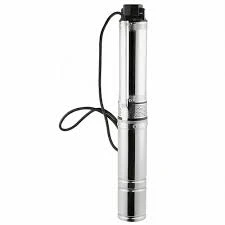Dec . 05, 2024 06:35 Back to list
Submersible Water Well Pumps Available for Purchase and Installation
Exploring Submersible Water Well Pumps for Sale
If you're in the market for a water supply solution, submersible water well pumps are a popular and effective choice. As their name suggests, these pumps are designed to be submerged in water, making them ideal for extracting groundwater from wells. Whether you're looking to supply water for residential use, agricultural irrigation, or for commercial purposes, understanding the features, benefits, and considerations of submersible pumps can help you make an informed purchase.
What are Submersible Water Well Pumps?
Submersible pumps consist of a sealed motor unit connected to a pump. This design allows them to operate underwater, eliminating the need for priming. The pump drives water to the surface through a discharge pipe, providing consistent and reliable water supply. Typically, submersible pumps are employed in deeper wells where water levels are below the surface.
Advantages of Submersible Pumps
1. Efficiency Submersible pumps are known for their efficiency. Being submerged reduces the risk of cavitation, which occurs when the pressure in the pump drops below the vapor pressure of the water, leading to reduced functioning. Their unique design allows for a lower horsepower requirement compared to jet pumps.
2. Durability These pumps are built to withstand harsh conditions, including corrosive environments, as they are often made from stainless steel or other robust materials. This durability extends their lifespan, making them a cost-effective investment in the long run.
3. Quiet Operation Since the pump is submerged in water, operating noise is significantly reduced. This makes submersible pumps a preferable option for residential areas where noise pollution can be a concern.
4. Space-Saving Design Unlike other pump types that may require above-ground installations, submersible pumps take up minimal surface space. This is especially advantageous in small properties where space is limited.
Considerations When Buying Submersible Pumps
submersible water well pumps for sale

1. Depth and Water Level Before purchasing a submersible pump, it’s crucial to measure the water depth in your well. Many pumps have specific depth ratings, and selecting one that matches your needs is essential to ensure efficient performance.
2. Flow Rate Requirements Consider how much water you need to supply daily. Flow rate is typically measured in gallons per minute (GPM), and you should choose a pump that can consistently meet your demands.
3. Power Source Submersible pumps can be powered by either electricity or solar energy. Solar-powered pumps are an excellent choice for remote areas lacking electrical infrastructure as they are sustainable and can significantly reduce energy costs.
4. Well Diameter Ensure that the pump you choose fits well within your well casing. Submersible pumps come in various diameters to suit different well sizes.
5. Quality and Brand Investing in a reputable brand with positive customer reviews can make a significant difference in your pump’s reliability and performance. Look for warranties and customer service support as well when making your choice.
Where to Buy Submersible Water Well Pumps
Finding submersible water well pumps for sale can be done through various channels. Home improvement stores, farm supply retailers, and specialized online marketplaces often carry a range of options. It’s wise to compare prices and features, and also consider seeking advice from professionals who can recommend suitable models based on your specific needs.
Conclusion
Submersible water well pumps represent a reliable solution for accessing groundwater. Their efficiency, durability, and quiet operation make them an appealing choice for various applications. By carefully considering factors such as depth, flow rate, and brand quality, you can ensure that you select the right pump to meet your needs. With a little research and planning, you can secure a dependable water supply system that will serve you well for years to come.
-
Submersible Water Pump: The Efficient 'Power Pioneer' of the Underwater World
NewsJul.01,2025
-
Submersible Pond Pump: The Hidden Guardian of Water Landscape Ecology
NewsJul.01,2025
-
Stainless Well Pump: A Reliable and Durable Pumping Main Force
NewsJul.01,2025
-
Stainless Steel Submersible Pump: An Efficient and Versatile Tool for Underwater Operations
NewsJul.01,2025
-
Deep Well Submersible Pump: An Efficient 'Sucker' of Groundwater Sources
NewsJul.01,2025
-
Deep Water Well Pump: An Efficient 'Sucker' of Groundwater Sources
NewsJul.01,2025
-
 Submersible Water Pump: The Efficient 'Power Pioneer' of the Underwater WorldIn the field of hydraulic equipment, the Submersible Water Pump has become the core equipment for underwater operations and water resource transportation due to its unique design and excellent performance.Detail
Submersible Water Pump: The Efficient 'Power Pioneer' of the Underwater WorldIn the field of hydraulic equipment, the Submersible Water Pump has become the core equipment for underwater operations and water resource transportation due to its unique design and excellent performance.Detail -
 Submersible Pond Pump: The Hidden Guardian of Water Landscape EcologyIn courtyard landscapes, ecological ponds, and even small-scale water conservancy projects, there is a silent yet indispensable equipment - the Submersible Pond Pump.Detail
Submersible Pond Pump: The Hidden Guardian of Water Landscape EcologyIn courtyard landscapes, ecological ponds, and even small-scale water conservancy projects, there is a silent yet indispensable equipment - the Submersible Pond Pump.Detail -
 Stainless Well Pump: A Reliable and Durable Pumping Main ForceIn the field of water resource transportation, Stainless Well Pump has become the core equipment for various pumping scenarios with its excellent performance and reliable quality.Detail
Stainless Well Pump: A Reliable and Durable Pumping Main ForceIn the field of water resource transportation, Stainless Well Pump has become the core equipment for various pumping scenarios with its excellent performance and reliable quality.Detail
